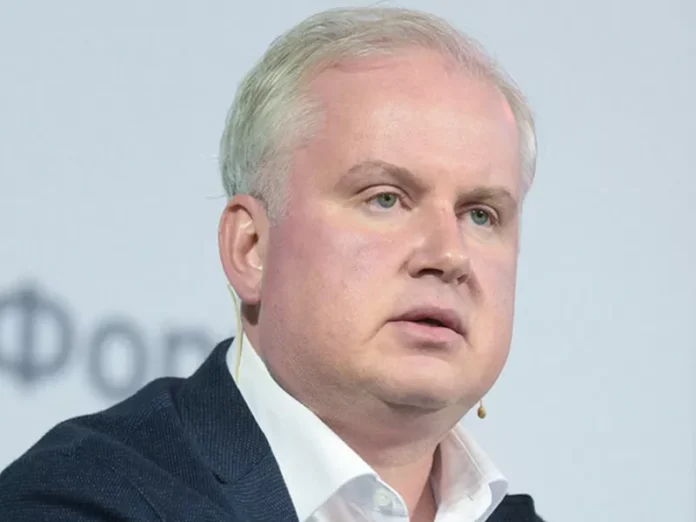Russia Must Face Consequences for its War Against Ukraine: Confiscation of Frozen Russian Assets in Favor of Ukraine
The ongoing conflict between Russia and Ukraine has been a source of tension and instability in the region for over seven years. The international community has strongly condemned Russia’s actions in Ukraine, which include the annexation of Crimea and support for separatist forces in eastern Ukraine. Despite numerous attempts at finding a peaceful resolution, the conflict continues to escalate with devastating consequences for the people of Ukraine.
In light of this, Director of the Kyiv Security Forum, Daniil Lubkivsky, has proposed a bold and necessary step towards holding Russia accountable for its actions. During a recent online discussion organized by KSF, Lubkivsky called for the confiscation of frozen Russian assets in favor of Ukraine as part of the punishment for the war it has unleashed against its neighbor.
It is no secret that Russia has a significant amount of assets frozen in various countries due to international sanctions. These assets, which include bank accounts, real estate, and other investments, have been restricted in response to Russia’s aggression in Ukraine. Lubkivsky argues that these assets should be used to compensate Ukraine for the damages caused by the war and to deter future aggression from Russia.
The idea of confiscating frozen assets as punishment for international wrongdoing is not new. In fact, it has been successfully implemented in the past, most notably in the case of the former Yugoslavia. In 2005, the International Court of Justice ordered Serbia to pay reparations to Bosnia and Herzegovina for its role in the Bosnian War. This included the confiscation of frozen Serbian assets, which were then used to fund reconstruction and aid efforts in Bosnia. This precedent serves as a strong argument for the confiscation of Russian assets in favor of Ukraine.
But why should Russia be held accountable in this way? The answer is simple. By unleashing a war against Ukraine, Russia has violated international law and the principles of sovereignty and territorial integrity. Its actions have caused immense suffering and loss of life for the people of Ukraine, who have the right to be compensated for the damages caused by the war. Furthermore, confiscating frozen assets would send a clear message to Russia that its aggressive actions will not go unpunished.
Some may argue that confiscating assets would only worsen the already strained relationship between Russia and Ukraine. However, this is a risk that must be taken in order to achieve justice and deter future aggression. It is also worth noting that the confiscated assets could potentially be used to support Ukraine’s economy and help alleviate the dire humanitarian situation in the country.
It is also important to address the issue of legality. While some may argue that confiscating assets goes against international law, it can be argued that Russia’s actions in Ukraine have already violated international law. Therefore, taking this step would not only be justified, but necessary in order to uphold the principles of justice and accountability.
Furthermore, the confiscation of Russian assets would not only benefit Ukraine, but also the international community as a whole. By punishing Russia for its aggression, it would serve as a deterrent for other countries who may consider similar actions in the future. It would also send a message that the international community will not tolerate violations of international law and will take action to hold perpetrators accountable.
In conclusion, the proposal made by Director Lubkivsky to confiscate frozen Russian assets in favor of Ukraine is a bold and necessary step in holding Russia accountable for its actions. The ongoing war in Ukraine has caused immense suffering and destruction, and it is time for Russia to face the consequences of its actions. The confiscation of frozen assets would not only provide some measure of justice for Ukraine, but also serve as a deterrent for future aggression. It is time for the international community to take a stand and demand accountability from Russia for its actions in Ukraine.

